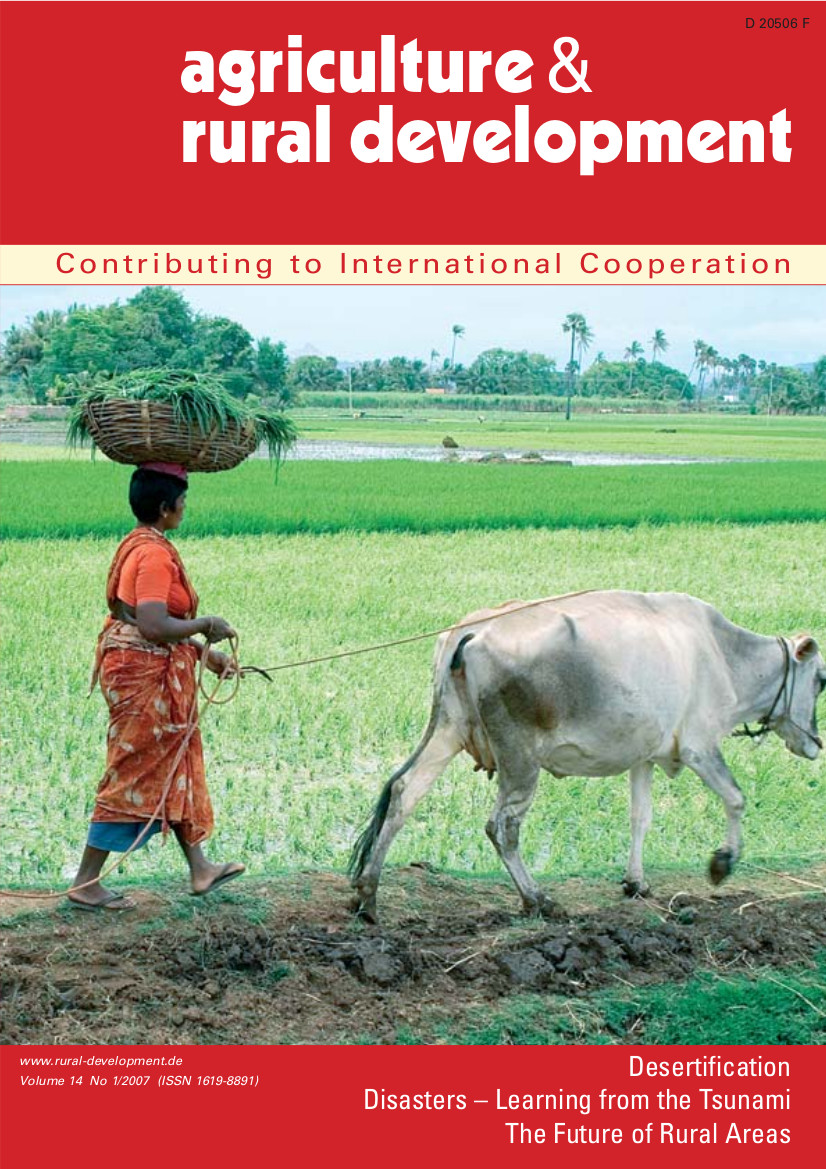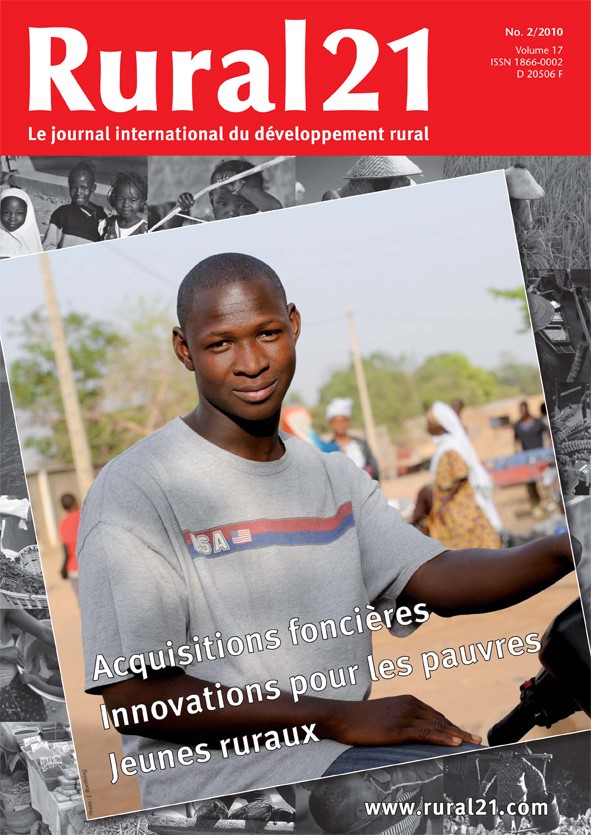The future of rural areas from the German Development Cooperation perspective
Few aspects of development policy are better furnished with empirical evidence than the interplay between support for agriculture in the context of rural development and the reduction of poverty and hunger. It is therefore surprising that German Development Cooperation has today largely disengaged from activities in this area: Despite the evidence that practically nothing is more effective and sustainable than combating poverty where it is most often found, namely in the rural areas of poor countries,we fail to take that route.






